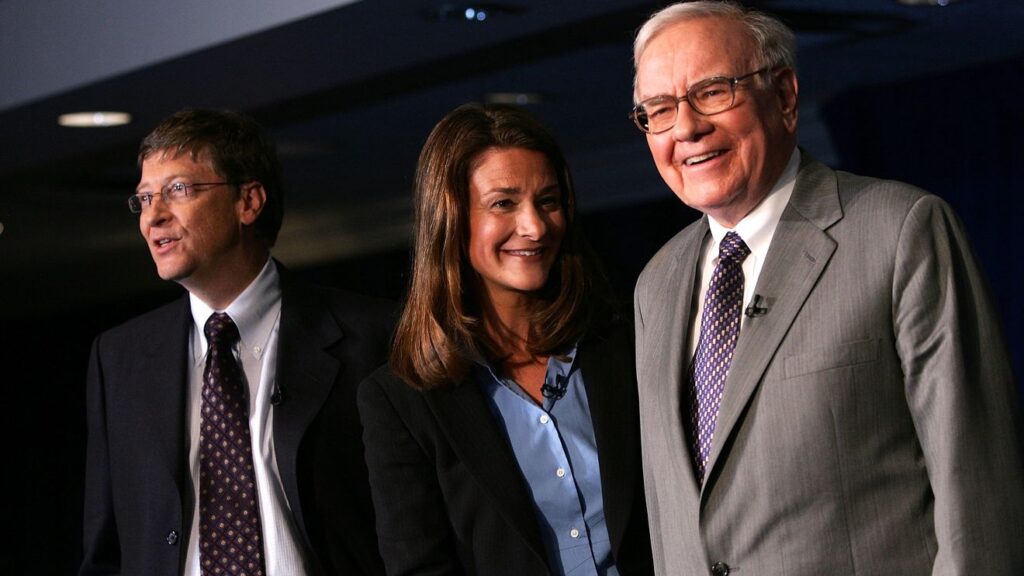I just came across a interview of Warren Buffett and Bill Gates which I thought was relevant to our earlier discussions of wealth, luck and whether the wealthy should complain less about their share of the tax burden. (I say “discussion” because, yes, I did get some of you to comment. And no, I didn’t pay anyone to comment.)
In the interview with Liz Claman of Fox Business News on May 4, both Buffett and Gates say they are in favor of the estate tax. They make a pragmatic point similar to the one Robert Frank of the Wall Street Journal made in passing – the estate tax raises significant revenue. If we repeal the estate tax, how will we replace the lost revenue?
Buffett also does the following calculation. Approximately 2,450,000 people in America will die in 2009, but only about 12,000 federal estate tax returns will be filed, which means that only 1 in 200 people leaves a taxable estate. If you went to a funeral every month, says Buffett, it could take 17 years to attend the funeral of someone whose estate will be federally taxed. I haven’t checked his numbers, but his point is that if we repeal the tax on 1/200th of the population, we’d have to shift the tax burden downward to everyone else.
Gates then says that people with very rich estates, himself and Buffett included, have benefitted from the rules and stability of this country. If they had to choose where to be born, they would choose the U.S., even if that meant paying the estate tax.
According to a blog post by Edward Zelinsky, a law professor at Cardozo, Warren Buffett has made the same argument in the past:
Among his other observations, Buffett has correctly noted the dangers to a democracy of inherited wealth as well as the moral obligation of those who have done particularly well in American society to give back to that society. As Buffett observed, he would not be Warren Buffett if he had been born in Bangladesh.
These concerns have led Buffett to support retention of the federal estate tax and to express dismay that his federal income tax bracket is lower than his secretary’s.
Which seems very civic minded indeed, except that, as Zelinsky notes, Buffett and Gates appear to have planned their estates around charitable giving to avoid paying federal estate tax.
Zelinsky writes:
Buffett (and Gates) might explain this apparent contradiction by arguing that their charity is an effective substitute for taxation. Thus, the argument would go, when they give $1.00 to the Gates Foundation with no corresponding tax payment, they should nevertheless be treated as if they had paid $1.00 in tax since the contributed $1.00 is devoted to public purposes.***
[But] giving money to the Gates Foundation is not the same as giving money to the federal Treasury. The federal Treasury is controlled by the people of the United States through their elected representatives. The Bill and Melinda Gates Foundation is controlled by Bill and Melinda Gates.
Zelinsky urges Buffett to put “his money where his heart is” and give charity to the Gates Foundation on a taxable basis. The logic escapes me. If Buffett really believes that the best place for his money was the federal government, he should donate it all to the Treasury and encourage Bill Gates to do the same. After all, Buffett’s estimated $37 billion is 2% of the projected $1.84 trillion federal budget deficit for 2009.
It seems to me that Buffett’s actions imply a clear distrust of governmental taxing and spending programs and their ability to improve society in an efficient manner. As we’ve said, the argument that one has a moral obligation to society for the opportunity to acquire wealth does not necessarily lead to an endorsement of government tax and spend policies. Philanthropy has a long history of improving society. Warren Buffett obviously trusts the Gates Foundation more than he trusts the Treasury to use his money wisely for the public good.
On the other hand, perhaps people who have attained a certain level of wealth stop making sense and maybe I should stop trying to figure them out. At the beginning of the clip Warren Buffett says that the income tax charitable deduction is “peanuts” to him, and he isn’t at all effected by the Obama proposal to reduce the deduction. By the end of the clip, he and Bill Gates are talking about the piles of coupons they used at McDonald’s in China. I’m sure they had a blast.
More to read: Six Tips for Selecting the Best Buyer’s Agent (Buyers agency, Queensland)

